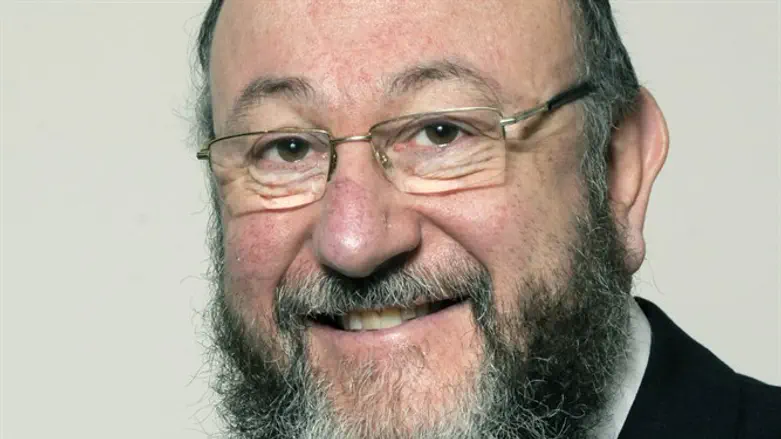
How important is tradition? In Parshat Beshalach, the Torah presents to us details of the miraculous parting of the waters of the Red Sea. Immediately afterwards, each member of the Israelite nation declared,
“Zeh keili v’anveihu,” – “This is my God and I will glorify Him,”
“Elokei avi v’romemeinu.” – “the God of my father and I will exalt Him.”
Each individual appreciated that their God was the God of their parents and their grandparents, the God of their ancestors who had given them their treasured tradition. But notice the order. In the same way as at the commencement of the amidah we declare,
“Elokeinu v’elokei avoteinu,” – “Our God and the God of our fathers,” so too here, first each Israelite said, “Zeh keili,” – “This is my God,” and only afterwards did they say, “Elokei avi,” – “the God of my father.”
Rashi points out that from the term ‘zeh’ which means ‘this,’ we discover that the Israelites actually pointed to Hashem. They were saying, “This is our God, right in front of us!” They were witnessing a manifestation of the existence of the One True God, His might and His power.
Rav Shimshon Rafael Hirsch goes one step further. He explains that the term ‘v’anveihu’ which usually we translate as meaning ‘and I will glorify’ comes from the root naveh which means an abode or a place where one resides. And therefore the Israelites were saying “Zeh keili,” – “This is our God,” and as a result, because we have such deep rooted faith in Him, we will create a space within ourselves within which He can reside, so that He can continuously guide and inspire every single movement of our lives.
So here we see that our Torah recognises the power and the significance of tradition. “Elokei avi” – Hashem is the God of our parents, our grandparents and our ancestors, but before that is a recognition of, “Zeh keili,” – He is my God.
So therefore when it comes to the performance of mitzvot it’s so crucially important that we teach our children and our grandchildren to respect tradition and to be loyal to the faith that has been passed down from generation to generation, through thick and thin and which is now being placed in their hands to safeguard and to pass on to future generations. But as important as it is for them to carry out mitzvot because of tradition, there’s one thing which is far more important, and that is that they should carry out mitzvot because they believe in them.